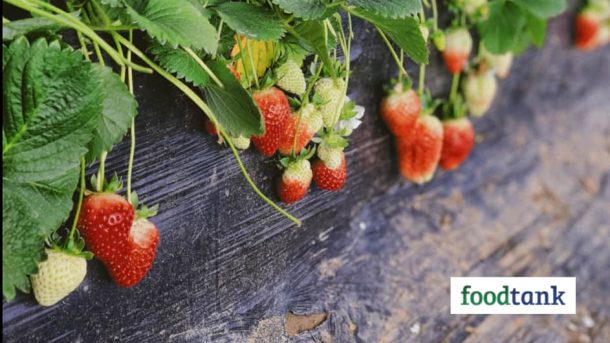
Home » Publications »
The Organic Farming Research Foundation (OFRF) recently released the 2022 National Organic Research Agenda (NORA). It finds that while demand for organic products is on the rise, farmers still face challenges using and transitioning to organic practices.
Published every five years, NORA seeks to identify key challenges facing organic farmers. The report uses survey data to highlight research areas and recommendations that directly address farmer-identified needs. This year’s report draws on responses from over 1,100 certified organic farmers and 71 transitioning-to-organic farmers.
The NORA report finds that in 2020, organic food sales experienced a 12 percent increase from 2019, exceeding US$56 billion.
The expansion of organic agriculture is also supporting the environment. Brise Tencer, Executive Director at OFRF and co-author of the report, tells Food Tank, “Our findings confirm that organic producers lead the country in soil health management practices such as cover cropping, perennial conservation plantings, and water conservation in drought-prone regions.”
But challenges remain for organic farmers, with 67 percent of respondents reporting that weeds present production issues. Additionally, 59 percent report that managing production costs is also a challenge. The authors argue that there is still a need for additional research to address these issues.
Black, Indigenous, and people of color (BIPOC) organic farmers report that they experience challenges to a greater extent than non-BIPOC farmers. These issues relate to production costs, weeds, disease, labor, certification costs, and securing capital and credit. In response, the authors call for urgent actions including increasing access to capital, land, and mentorship programs for BIPOC farmers.
Greater support is also needed to help farmers looking to transition to organic practices. This is especially important for BIPOC growers, who make up only 4 percent of organic producers, according to a 2019 National Agricultural Statistics Service (NASS) survey.
“Historical underinvestment in research, education and extension is the greatest roadblock [to transitioning to certified organic], but access to land and capital are also roadblocks for farmers,” Tencer tells Food Tank.
When transitioning to organic practices, a farmer’s land may not produce at full capacity, which makes it difficult to pay rent, Tencer explains. “It takes three years to transition conventionally farmed land to organic production,” she says. For farmers working on rented land, they may not deem it worthwhile to make this investment unless they have a long-term lease.
Surveyed farmers say they would like farmer-to-farmer mentoring programs and a centralized location for resources on organic farming.
The report also recommends policy interventions including increasing federal funding and resources, ensuring the integrity of the certified organic label, and elevating organic products as being better for the environment. This can make transitioning to organic farming more appealing to farmers.
And while the report focuses on organic farmers, Tencer believes the findings can benefit all producers. “These organic regenerative practices build healthy soils for everyone,” Tencer tells Food Tank. “They protect resources, sequester carbon, and help mitigate climate change—something all farmers, organic and non-organic, must face.”
Tencer hopes that the report serves as an updated guide for research, technical assistance, and policy development that empowers organic producers to grow and continue to implement climate-friendly practices.
“Everything OFRF does and advocates for is to advance the needs of organic and transitioning growers, so this report will be invaluable to us in informing our Farm Bill priorities,” Tencer tells Food Tank. “In the next five years I hope to see organic practices and systems embraced as a key tool to advancing climate mitigation and adaptation.”
Articles like the one you just read are made possible through the generosity of Food Tank members. Can we please count on you to be part of our growing movement? Become a member today by clicking here.
Photo courtesy of Jeeray Tang, Unsplash
Adam Sella is a Senior at Harvard, graduating with a degree in Comparative Literature and Philosophy and a citation in Arabic language. On campus, he is part of the Food Literacy Project and he has spent his summers working on a farm and in a restaurant. Adam is interested in sustainable cooking practices and environmental peace building. In his free time, you can find Adam cooking or baking for his friends and family or training for marathons and triathlons.
Food Tank is focused on building a global community for safe, healthy, nourished eaters. Food Tank is a 501(c)3 non profit organization. All donations are tax deductible.
© 2013-2022 Food Tank. All rights reserved.




